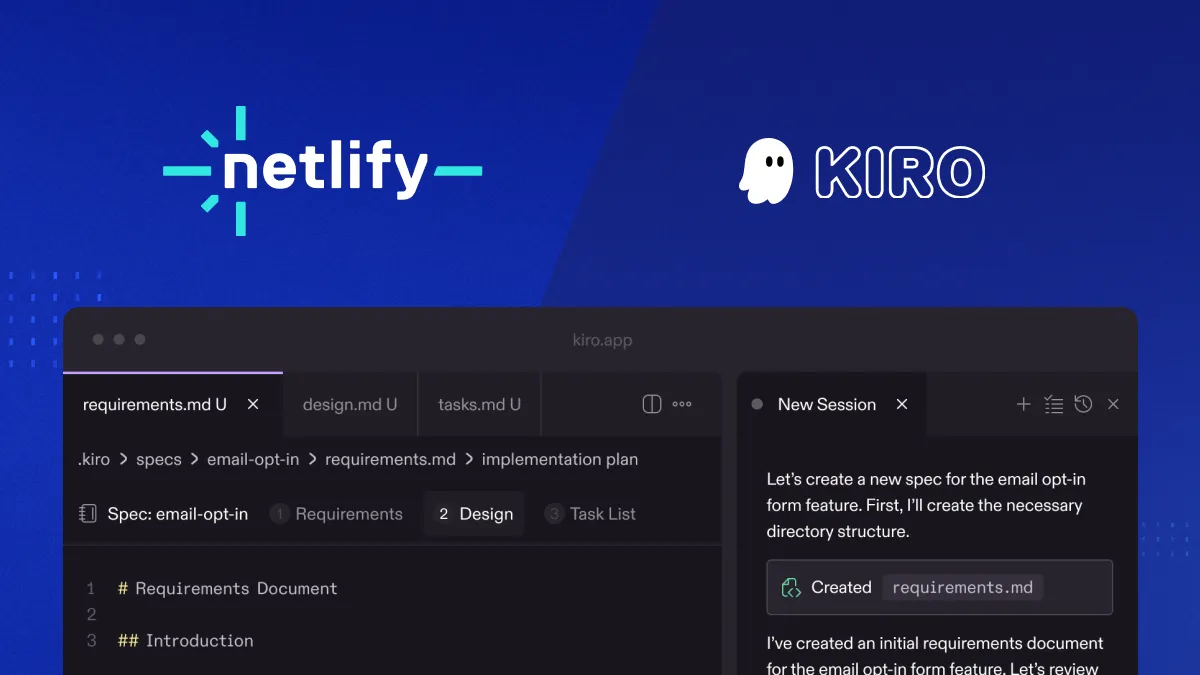For enterprise teams building on Netlify, developers often need to test their applications by connecting their frontend code to internal APIs and services. This can be cumbersome with resource-intensive microservices or kubernetes clusters. Instead of frying your laptop and spending time configuring a local environment, you’ll often be forced to use a simple, likely out-of-date mock API. Alternatively, you may be tempted to expose a private service to the internet. The net of it is choosing between velocity and security.
Which is why we’re excited to announce our Codezero extension for Netlify. Our new extension enables secure access to internal services and private APIs without exposing them to the public internet through a concept we call Zero Environment Development.
Zero Environment Development
Zero Environment Development (ZED) is an approach to code and test within a local environment that’s a perfect, real-time ephemeral version of pre-prod, resulting in faster development and less errors. Codezero makes this possible by keeping the heavyweight, resource-intensive processes in the cloud while retaining your familiar lightweight, local development tools.

This opens the ability to rapidly iterate and experiment even with resource-intensive services like LLMs and databases. Additionally, ZED prevents environment misconfiguration and simplifies managing complex environments by providing a consistent and reproducible setup for cloud development, enabling developers to focus on creating and refining their code. Let’s explore a few ways you can take advantage of this.
Secure local development
Developing cloud-native applications often requires complex local environments to simulate production. Running Kubernetes clusters or replicating microservices locally can be time-consuming and resource-heavy. The Codezero and Netlify integration addresses this by allowing developers to run their frontend locally with Netlify Dev, while Codezero securely connects to the heavier remote infrastructure, like a Kubernetes cluster.
This enables real API calls to live backend services without local Kubernetes setups and catching bugs early by testing against real data and services. This approach eliminates the need for mock APIs or outdated staging environments, making local development faster, more reliable and closer to production.
Simplified service-to-service communication
In hybrid architectures that combine serverless functions with containerized microservices, secure and efficient service-to-service communication can be a major headache. Traditional solutions like API gateways, VPN tunnels, or service meshes often introduce unnecessary complexity, latency and security risks.
Codezero simplifies this by providing secure, direct networking between Netlify Functions and services running in Kubernetes clusters. This means your Netlify serverless functions can interact with internal APIs just like any other microservice. It’s particularly useful for scenarios like secure data processing or internal API calls that need low-latency, high-trust communication.
Developer access control
Security is often at odds with developer productivity, especially when trying to limit access to sensitive internal APIs while maintaining a smooth development workflow. Codezero’s Zero Credentials addresses this challenge by providing granular access control for services running in any cloud, hybrid cloud, or on-prem environment, completely eliminating the need for secret keys to be exposed in the development environment..
Instead of managing complex firewall rules, API gateways, or static IP whitelists, Codezero Zero Credentials leverages Open Policy Agent (OPA) and encrypted tunnels to handle secure connections dynamically. This helps applications dealing with sensitive data, such as financial services or healthcare apps, where strict compliance requirements apply. The result is a developer-friendly workflow that doesn’t compromise on security, allowing teams at an accelerated pace without introducing unnecessary risks.
Getting started with Codezero
With Codezero, developers get unprecedented clarity into how changes to code impact software resiliency, cost, performance and customers without infrastructure nuances or network boundaries getting in the way. DevOps can eliminate environment configuration and credential sprawl with policy based (OPA) access to services (local, Kubernetes, Virtual Private Cloud or PaaS) across the team.
We’re excited for enterprises on Netlify to enhance their security posture through extensions like ours. Install the Codezero extension to get started.







